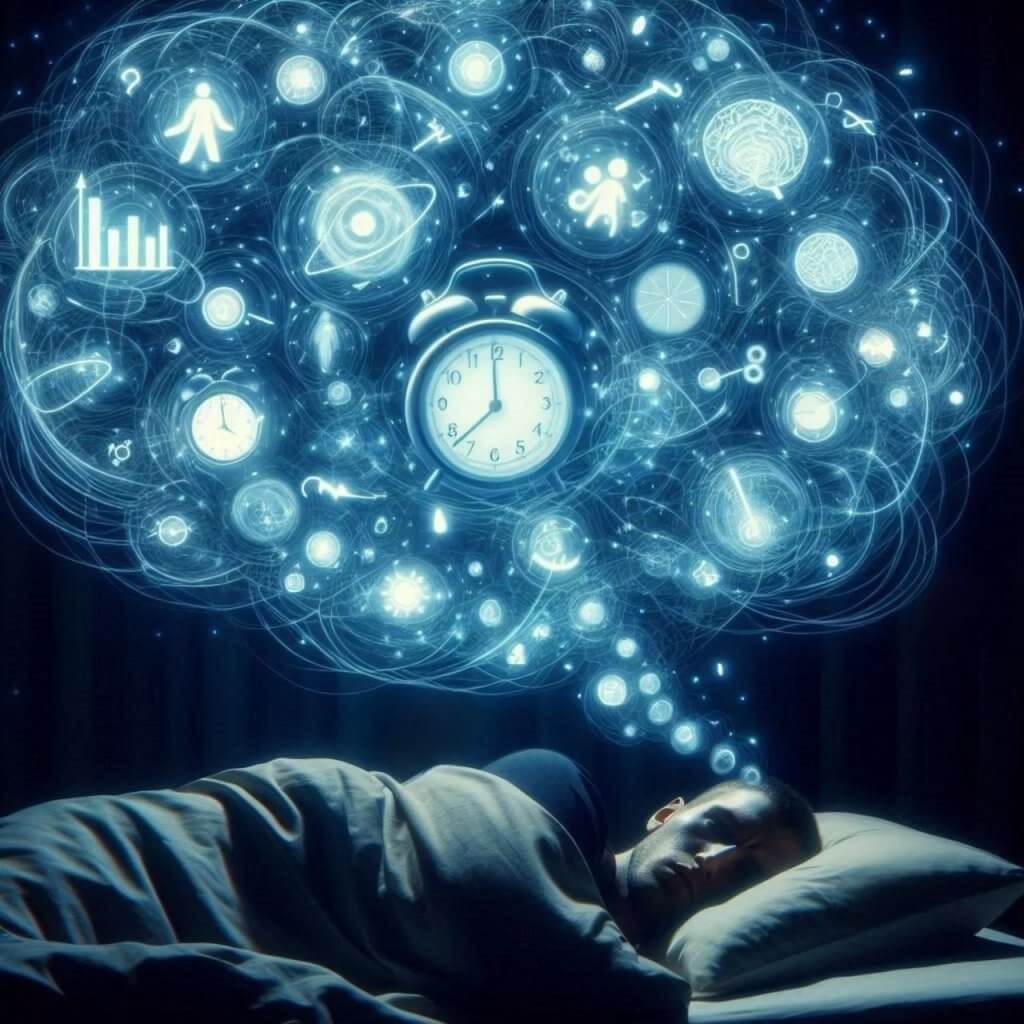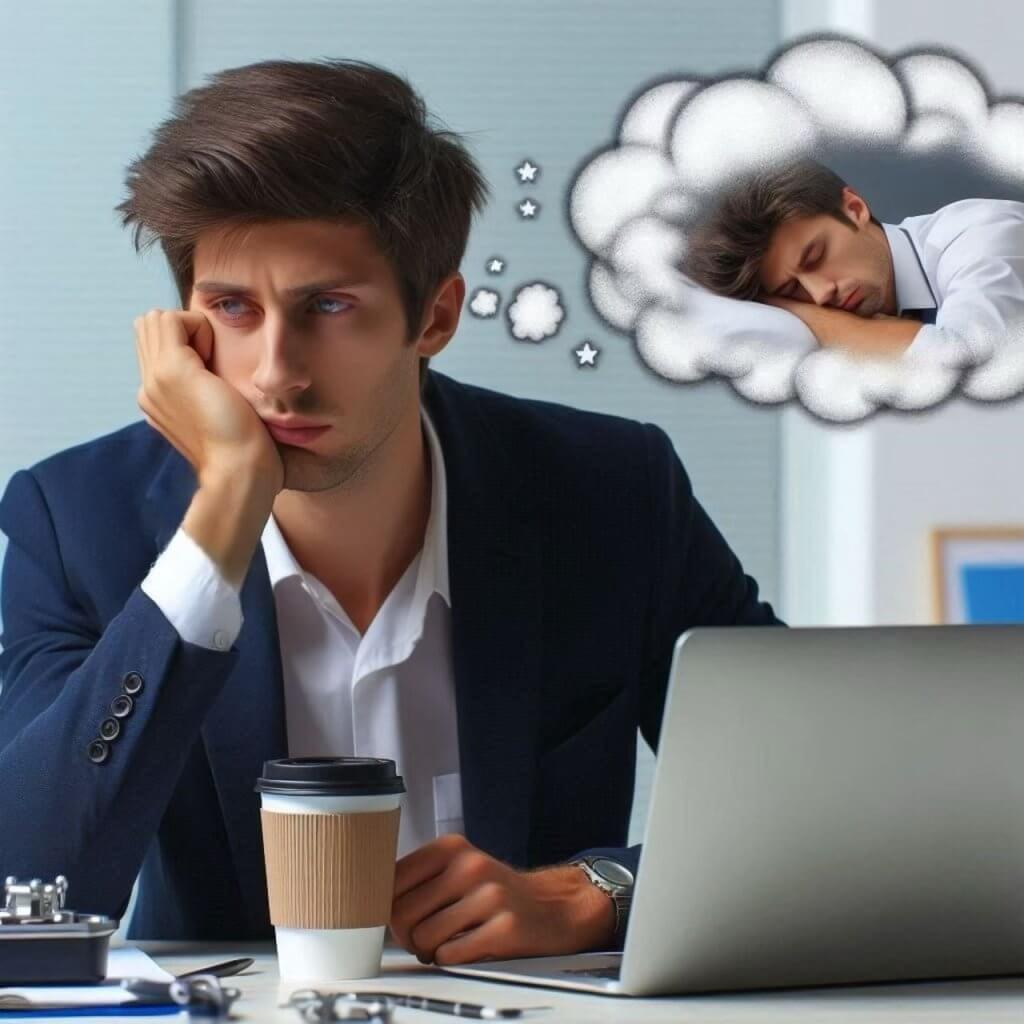
ADHD and Sleep Disorders: Breaking the Cycle of Sleeplessness
Have you ever found yourself lying awake at night, unable to quiet your racing thoughts, and dreading the day ahead because you already know you’ll be exhausted? For individuals with Attention Deficit Hyperactivity Disorder (ADHD), this is more than an occasional inconvenience—it’s a nightly reality.
The relationship between ADHD and sleep is complex. ADHD doesn’t just ma…
Here’s a carefully crafted and refined article that avoids repetition, ensures clarity, and offers a seamless flow from start to finish:
ADHD and Sleep Disorders: Breaking the Cycle

Sleep is vital for physical and mental well-being, yet for individuals with Attention Deficit Hyperactivity Disorder (ADHD), restful nights often feel elusive. ADHD doesn’t just create challenges during the day—it disrupts sleep patterns, turning nights into struggles with racing thoughts, misaligned body clocks, and persistent anxiety.
Poor sleep doesn’t simply lead to tiredness. It worsens ADHD symptoms like impulsivity, inattentiveness, and emotional reactivity, creating a cycle that impacts work, relationships, and overall health. The good news? Understanding the link between ADHD and sleep disorders is the first step toward overcoming these challenges.
How ADHD Disrupts Sleep

ADHD uniquely affects the brain’s ability to regulate processes like attention, focus, and relaxation. Here’s how these disruptions interfere with sleep:
1. Racing Thoughts
For many, lying in bed is a chance to relax. But for people with ADHD, it’s when thoughts flood in—a replay of the day, a plan for tomorrow, or an endless stream of worries.
Real-Life Story: Emma, a graphic designer, often loses track of time while working late into the night. Even when she powers down her laptop, her brain keeps processing ideas, leaving her unable to sleep.
2. Misaligned Body Clock
ADHD often results in delayed circadian rhythms, meaning the internal body clock is out of sync with the typical sleep schedule. This “night owl” tendency makes it harder to sleep and wake at conventional times.
3. Anxiety and Stress
Stress amplifies the restlessness ADHD causes. Instead of winding down at bedtime, individuals often feel heightened worry about past mistakes or future responsibilities, making relaxation feel impossible.
4. Medications That Interfere
Stimulant medications prescribed for ADHD can sometimes linger into the evening, increasing alertness and delaying sleep onset.
For insights on managing medication effects, read ADHD and Its Medications: Exploring Benefits and Risks.
Sleep Disorders Linked to ADHD

ADHD isn’t just linked to sleepless nights—it’s associated with specific sleep disorders:
- Insomnia: Difficulty falling or staying asleep, leaving individuals tired the next day.
- Restless Legs Syndrome (RLS): A constant urge to move the legs during rest, which disrupts sleep.
- Sleep Apnea: Breathing interruptions during sleep result in poor sleep quality and fatigue.
- Circadian Rhythm Disorders: Delayed body clocks make falling asleep and waking up difficult.
- Narcolepsy: Though rare, narcolepsy can cause excessive daytime sleepiness and sudden sleep attacks in people with ADHD.
Learn more about ADHD’s connection to rhythm disruption in Navigating Rejection Sensitivity and ADHD.
Impact of Sleep Loss on ADHD Symptoms
Sleep deprivation doesn’t just leave you tired—it intensifies ADHD challenges in several ways:
1. Reduced Attention
A lack of sleep worsens focus, making it harder to stay organized or complete tasks.
Story: James, an IT specialist, struggles with prioritizing assignments after restless nights. This pattern of missing deadlines hurts his confidence and work quality.
2. Emotional Sensitivity
Sleep loss reduces emotional regulation, making small frustrations feel overwhelming.
Story: Ava, a university student, noticed she became irritable and snapped at her friends over minor disagreements after consecutive sleepless nights.
3. Time Management Struggles
Poor sleep affects the ability to organize schedules, leading to frequent tardiness or incomplete work.
Story: Sarah, a freelance writer, underestimates the time needed for her projects due to exhaustion, causing her to miss deadlines repeatedly.
How to Improve Sleep When Living with ADHD

ADHD doesn’t have to mean sleepless nights. Here are effective strategies to take control:
1,Build a Consistent Routine
Establishing a regular sleep schedule helps regulate the body’s internal clock. Going to bed and waking up at the same time each day is key.
Tip: Create pre-sleep habits, like journaling or listening to calming music, to signal the mind that it’s time to rest.
2. Optimize Your Sleep Environment
Your bedroom should promote sleep, not distractions:
- Keep it dark, quiet, and cool.
- Use tools like blackout curtains, white noise machines, or eye masks to eliminate disruptions.
3. Exercise and Relaxation Practices
Morning workouts help regulate hormones like melatonin and dopamine, improving overall sleep quality. Additionally, relaxation methods—such as yoga or breathing exercises—can ease restlessness before bed.
Story: Liam, a software engineer, began doing simple breathing exercises each night and noticed significant improvement in falling asleep within weeks.
4. Watch Your Diet
Certain foods and drinks, like caffeine or sugary snacks, can disrupt sleep when consumed close to bedtime. Opt for magnesium-rich foods like spinach or almonds for natural relaxation.
5. Seek Professional Support
If sleep difficulties persist, consult an ADHD specialist or sleep expert. Tailored assessments can identify underlying issues and offer solutions.
Explore resources like:
Frequently Asked Questions (FAQs)
1. Can ADHD medications affect sleep?
Yes, stimulant medications may interfere with sleep by increasing alertness in the evening. Adjustments to dosage or timing with a healthcare provider can help resolve this issue.
2. What are common sleep disorders in ADHD?
Conditions like insomnia, RLS, sleep apnea, and delayed circadian rhythms are frequently linked to ADHD.
3. How can ADHD individuals improve sleep quality?
Building routines, optimizing sleep environments, practicing relaxation techniques, and consulting professionals can significantly improve sleep quality.
Conclusion: Begin the Journey Toward Better Sleep
ADHD and sleep challenges may seem like an endless cycle, but small, consistent steps can create meaningful change. Start with one habit—such as setting a bedtime or practicing mindfulness—and build upon it gradually.
Even one adjustment, like minimizing distractions in the bedroom or trying breathing exercises, can lead to visible improvement. Over time, these efforts transform restless nights into restorative rest and empower individuals to embrace brighter days.
Remember, overcoming sleep difficulties starts with understanding—and action. Sleep well, live better—your journey begins today.



